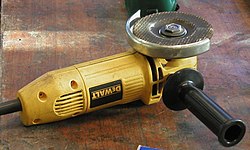Top Qs
Timeline
Chat
Perspective
mola
From Wiktionary, the free dictionary
Remove ads
See also: Appendix:Variations of "mola"
English
Pronunciation
- (UK) IPA(key): /ˈməʊ.lə/
Audio (Southern England): (file) - (General American) IPA(key): /ˈmoʊ.lə/
- Rhymes: -əʊlə
Etymology 1
Noun
mola (plural molas)
Derived terms
Etymology 2
(This etymology is missing or incomplete. Please add to it, or discuss it at the Etymology scriptorium.)
Noun
mola (plural molas)
- A traditional textile art form of the Kuna people of Panama and Colombia, consisting of cloth panels to be worn on clothing, featuring complex designs made with multiple layers of cloth in a reverse appliqué technique.
- 1977, Rhoda L. Auld, Molas: What they are, How to make them, Ideas they suggest for creative appliqué, page 67:
- The classic mola is pure applique and is distinguished by alternating bands of color.
- 1979, Kax Wilson, A History of Textiles, Westview Press, →ISBN, page 339:
- Molas originally served, and still serve, as blouse front and backs.
Translations
traditional textile art using reverse appliqué
Anagrams
Remove ads
Albanian
Verb
mola
Catalan
Etymology 1
Pronunciation
Noun
mola f (plural moles)
- millstone, a circular stone of the two that make up the ordinary mill, one is mobile and is rolled over the other, which is fixed
- grindstone, an instrument consisting of a piece of an abrasive material that is rotated around its axis and is used for sharpening, polishing, deburring, rectifying, profiling, etc. miscellaneous tools or parts
- passar per la mola ― to overcome, to subdue somebody (an idiom, literally to pass it under the grindstone)
- the amount of water needed to move a millstone
Derived terms
Related terms
Etymology 2
Pronunciation
Noun
mola f (plural moles)
- mass (something large or of great volume)
- (geography) an isolated hill of massive form, rounded and flat on top, with very steep upper flanks
- (fishing) a lot of fish that go together
- a rope that has been coiled to form a spiral
- sunfish, a fish of the species Mola mola
- Synonyms: bot, peix lluna
Related terms
Etymology 3
See the etymology of the corresponding lemma form.
Pronunciation
Verb
mola
- inflection of molar (“to mock”):
Etymology 4
See the etymology of the corresponding lemma form.
Pronunciation
Verb
mola
- inflection of molar (“to sharpen (dialectal)”):
Further reading
- “mola”, in Diccionari de la llengua catalana [Dictionary of the Catalan Language] (in Catalan), second edition, Institute of Catalan Studies [Catalan: Institut d'Estudis Catalans], April 2007
- “mola”, in Gran Diccionari de la Llengua Catalana, Grup Enciclopèdia Catalana, 2025
- “mola” in Diccionari normatiu valencià, Acadèmia Valenciana de la Llengua.
- “mola” in Diccionari català-valencià-balear, Antoni Maria Alcover and Francesc de Borja Moll, 1962.
Remove ads
Cornish
Etymology
Verb
mola
Conjugation
Derived terms
- molys (“clotted”)
Mutation
Note: Certain mutated forms of some words can never occur in standard Cornish.
All possible mutated forms are displayed for convenience.
Remove ads
Esperanto
Etymology
From French molle and Italian molle, both from Latin mollis.
Pronunciation
Adjective
mola (accusative singular molan, plural molaj, accusative plural molajn)
Antonyms
Derived terms
Icelandic
Etymology
Pronunciation
Verb
mola (weak verb, third-person singular past indicative molaði, supine molað)
- to shatter, to smash [with accusative]
Conjugation
1 Spoken form, usually not written; in writing, the unappended plural form (optionally followed by the full pronoun) is preferred.
1 Spoken form, usually not written; in writing, the unappended plural form (optionally followed by the full pronoun) is preferred.
Remove ads
Ido
Adjective
mola
Antonyms
Irish
Pronunciation
Verb
mola
- inflection of mol:
Mutation
Note: Certain mutated forms of some words can never occur in standard Modern Irish.
All possible mutated forms are displayed for convenience.
Remove ads
Italian
Pronunciation
Etymology 1
From Latin mola, from Proto-Indo-European *melh₂- (“to grind, crush”).
Noun
mola f (plural mole)
- millstone
- grindstone
- honing
- (historical, Romanesco) water mill; especially one of the mills once found adjacent Isola Tiberina
- (colloquial) angle grinder, disc grinder, side grinder (power tool with a perpendicular abrasive disc)
- (colloquial) bench grinder
Related terms
See also
Etymology 2
See the etymology of the corresponding lemma form.
Verb
mola
- inflection of molare:
Anagrams
Kankanaey
Pronunciation
Noun
móla
- things planted
Synonyms
Dialectal synonyms & variants of mola
References
Remove ads
Karao
Noun
mola
Latgalian
Etymology
From Proto-Balto-Slavic [Term?], from Proto-Indo-European *ml̥Hdʰo-. Cognates include Latvian mala.
Pronunciation
Noun
mola f (diminutive maleņa)
Declension
1) dialectal
References
- Nicole Nau (2011), A short grammar of Latgalian, München: LINCOM GmbH, →ISBN
Latin
Etymology
From Proto-Italic *molā, from Proto-Indo-European *melh₂- (“to grind, crush”). Cognate with Latin mollis, Ancient Greek μύλη (múlē), English meal. See also English maelstrom.
Pronunciation
- (Classical Latin) IPA(key): [ˈmɔ.ɫa]
- (modern Italianate Ecclesiastical) IPA(key): [ˈmɔː.la]
Noun
mola f (genitive molae); first declension
- millstone
- (especially in the plural) mill
- ground meal
- (transferred sense) (sacred) flour, coarse-ground meal used in sacrifices
- mola salsa (literally “salted flour”)
Declension
First-declension noun.
Hyponyms
- mola aquāria (“water mill”)
- mola asināria (“Roman stone hand mill, worked by a donkey or mule”)
Derived terms
Related terms
Descendants
- Insular Romance:
- Balkano-Romance:
- Italo-Romance:
- Rhaeto-Romance:
- Gallo-Romance:
- Ibero-Romance:
References
- “mola”, in Charlton T. Lewis and Charles Short (1879), A Latin Dictionary, Oxford: Clarendon Press
- “mola”, in Gaffiot, Félix (1934), Dictionnaire illustré latin-français, Hachette.
Lower Sorbian
Noun
mola f
Declension
declension of mola
Northern Sami
Pronunciation
Verb
mola
- inflection of mollat:
Polish
Pronunciation
Noun
mola m animal
Noun
mola m inan
Portuguese
Romanian
Scottish Gaelic
Spanish
Sukuma
Swahili
Swedish
Turkish
Welsh
Wikiwand - on
Seamless Wikipedia browsing. On steroids.
Remove ads

